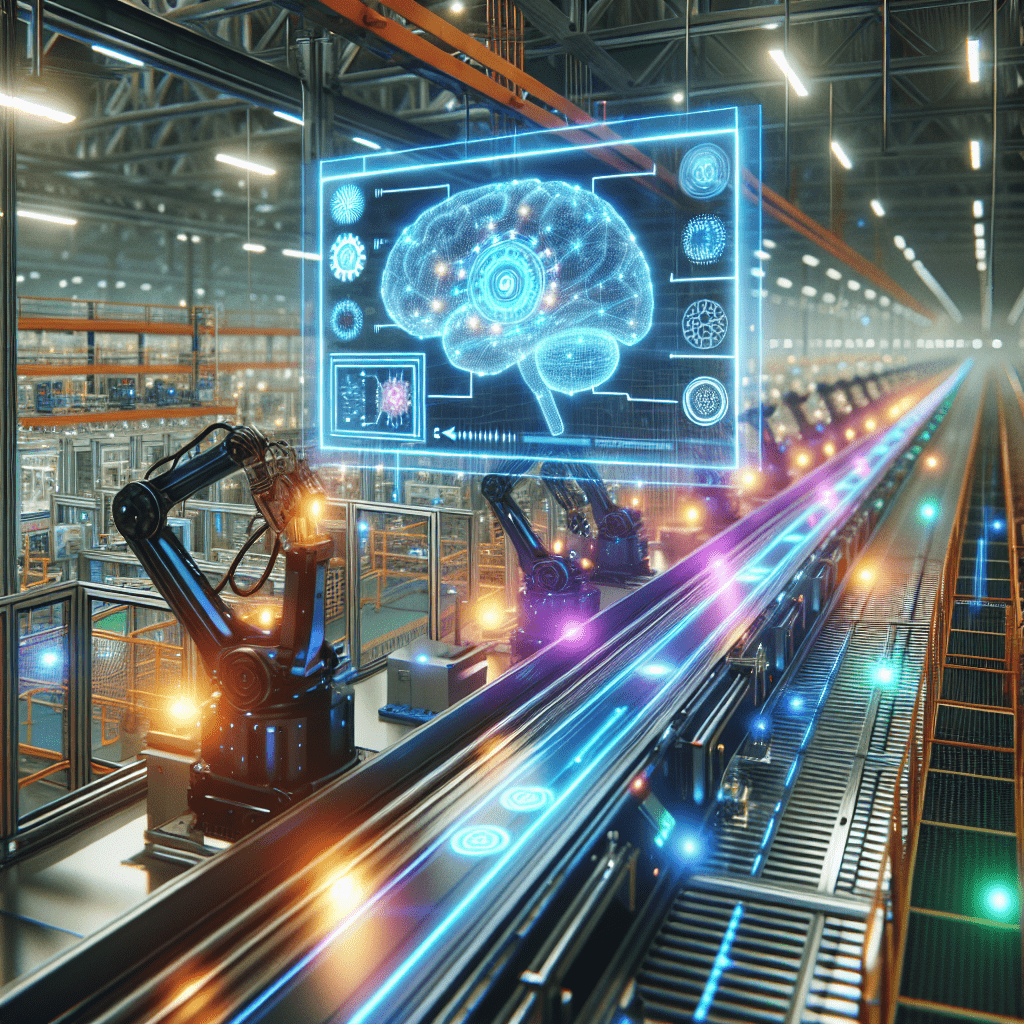Artificial Intelligence (AI) has revolutionized the manufacturing industry by streamlining production processes, enhancing efficiency, and improving overall productivity. Automation and machine learning algorithms have led to the development of smart factories that are transforming the way products are made. From predictive maintenance to quality control and supply chain management, AI is reshaping the manufacturing landscape.
The Impact of AI in Manufacturing
AI technologies such as robotics, machine learning, and Internet of Things (IoT) devices are being used in manufacturing to automate repetitive tasks, optimize production schedules, and improve decision-making processes. By analyzing large volumes of data in real-time, AI systems can identify inefficiencies, predict maintenance needs, and optimize supply chain operations.
Manufacturers are leveraging AI to increase the speed and accuracy of production processes, reduce costs, and improve product quality. For example, AI-powered robots can perform repetitive tasks such as assembly and packaging with precision and efficiency, while AI algorithms can analyze production data to identify patterns and trends that can be used to optimize operations.
Benefits of AI in Manufacturing
There are several benefits of using AI in manufacturing, including:
- Increased productivity and efficiency
- Improved quality control and defect detection
- Predictive maintenance to reduce downtime
- Optimized supply chain management
- Enhanced safety and security
AI technologies help manufacturers gain a competitive edge by enabling them to produce higher-quality products at lower costs and faster speeds. By automating routine tasks, AI frees up employees to focus on higher-value activities, such as innovation and strategic decision-making.
Challenges of Implementing AI in Manufacturing
While AI offers numerous benefits to manufacturers, there are also challenges associated with implementing AI technologies in manufacturing environments. Some of the key challenges include:
- High initial investment costs
- Integration with existing systems and processes
- Data security and privacy concerns
- Skills gap and training requirements
Manufacturers need to carefully consider these challenges and develop a comprehensive strategy for implementing AI technologies to ensure successful outcomes.
Conclusion
AI is transforming the manufacturing industry by streamlining production processes, enhancing efficiency, and improving overall productivity. By leveraging AI technologies such as robotics, machine learning, and IoT devices, manufacturers can automate tasks, optimize production schedules, and make data-driven decisions that help them stay competitive in a rapidly evolving market. While there are challenges associated with implementing AI in manufacturing, the benefits far outweigh the risks, and companies that embrace AI are poised to achieve significant advancements in their operations and performance.
FAQs
Q: How can AI improve quality control in manufacturing?
A: AI technologies can analyze production data in real-time to identify defects, anomalies, and patterns that may indicate quality issues. By automating quality control processes, manufacturers can detect and correct problems before they impact production or customer satisfaction.
Q: What is predictive maintenance, and how does AI enable it?
A: Predictive maintenance uses AI algorithms to analyze equipment data and predict when maintenance is needed to prevent breakdowns and reduce downtime. By monitoring equipment performance in real-time, manufacturers can schedule maintenance proactively, saving time and costs.
Quotes
“AI is not just a technology. It is a mindset that can transform how we work and live.” – Sundar Pichai, CEO of Google
#Manufacturing #Streamlining #Production #Enhancing #Efficiency


